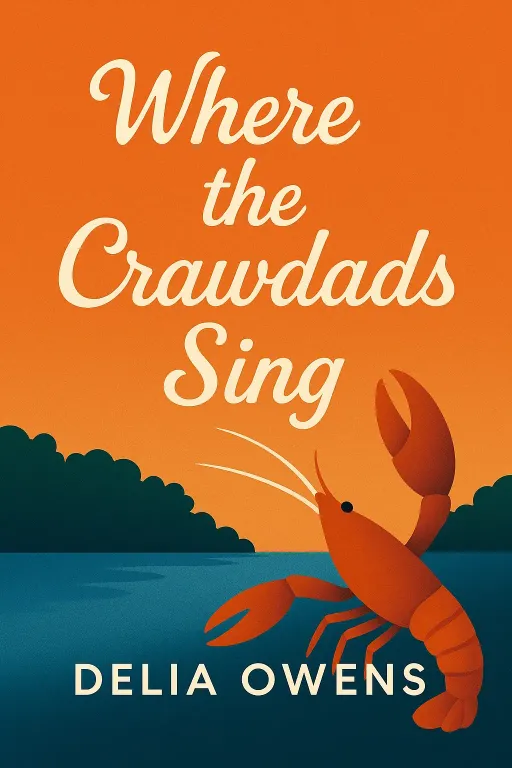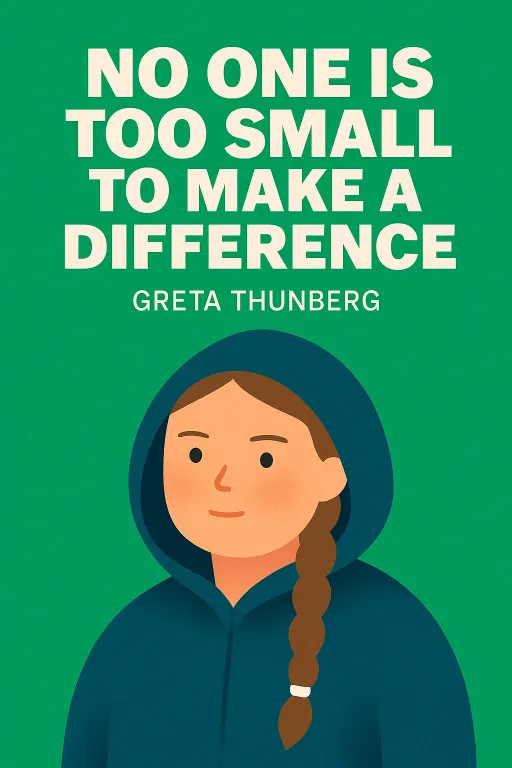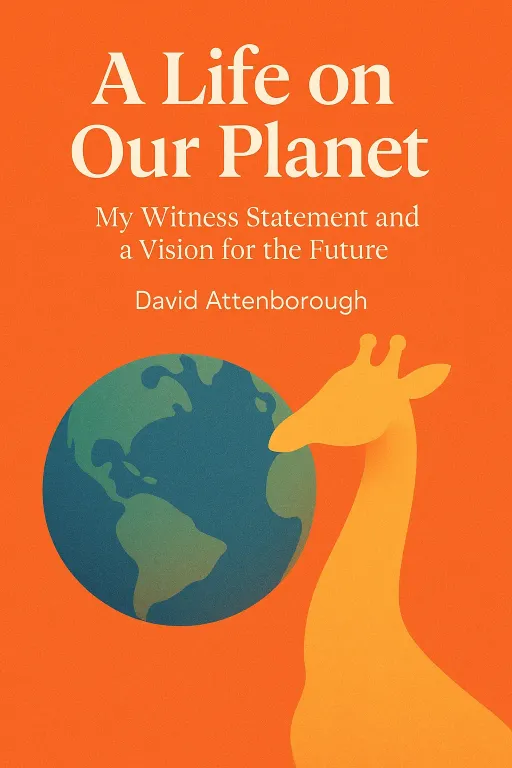
Where the Crawdads Sing
11 minIntroduction
Narrator: In the salt-laced air of the North Carolina coast, a six-year-old girl stands on the porch of a dilapidated shack. She watches her mother, dressed in faux-alligator heels and carrying a single blue train case, walk down the sandy lane and out of her life forever. The girl, Kya, waits. She waits through the day, through the night, and through the slow, painful departure of her four older siblings, each one escaping the ghost-haunted shack and their violent, alcoholic father. Soon, she is left utterly alone, a child raised not by a family, but by the marsh itself—its tides, its creatures, its deep and silent rhythms. This profound isolation is the crucible that forges the "Marsh Girl," a figure of local legend and suspicion. But when a popular local man is found dead years later, that suspicion turns deadly, and the marsh that raised her may not be able to protect her from the judgment of the outside world. This is the haunting landscape of Delia Owens's novel, Where the Crawdads Sing, a story that explores the fierce resilience of a life lived on the margins and the secrets that nature keeps.
The Marsh is Both a Sanctuary and a Prison
Key Insight 1
Narrator: The novel establishes the marsh not merely as a backdrop, but as a living, breathing character that defines Kya's existence. It is a place of breathtaking beauty and brutal indifference, a "space of light, where grass grows in water, and water flows into the sky." This environment is distinct from the dark, stagnant swamp where decomposition reigns. The marsh is about life, flow, and constant change. Historically, its inaccessibility made it a refuge for outcasts—runaways, renegades, and men broken by war, all seeking to escape the rigid structures of society.
For Kya, this duality is her reality. The marsh becomes her mother, her teacher, and her only companion. It provides her with food, solace, and a deep, instinctual knowledge of the natural world. She learns the patterns of the gulls, the language of the tides, and the secrets of the fireflies. In this, the marsh is a sanctuary that nurtures her spirit. Yet, it is also a prison. Its isolation cuts her off from human society, leaving her without formal education, social skills, or the simple comfort of another person's presence. The very wildness that saves her also makes her a pariah, the "Marsh Girl" who is feared and shunned by the townspeople of Barkley Cove.
The Unraveling of Family Leaves the Deepest Scars
Key Insight 2
Narrator: Kya’s story is fundamentally shaped by a series of abandonments. The first and most formative is her mother’s departure. This event, seen through the eyes of a six-year-old, is a silent, inexplicable trauma that sets the tone for her entire life. One by one, her siblings follow, until only her older brother Jodie is left. He offers her a brief moment of comfort, teaching her to hide from their father's rages, before he too disappears down the lane, leaving her alone with Pa.
For a time, a fragile bond forms between Kya and her father. He teaches her to fish, and they fall into a quiet routine. This brief period of stability gives Kya a flicker of hope for a family. That hope is brutally extinguished in one of the book's most pivotal scenes. A letter arrives, addressed to Kya in her mother's handwriting. Overjoyed, Kya waits for Pa, believing this is the moment her family will be whole again. Instead, Pa snatches the letter and burns it without a word, destroying her last connection to her mother. Soon after, he too disappears for good, leaving ten-year-old Kya completely and utterly alone. This final abandonment cements a core belief in Kya: everyone she loves will eventually leave.
Society's Judgment Forges a Fierce Self-Reliance
Key Insight 3
Narrator: Driven from the world of people, Kya is forced to find her own way to survive. Her few attempts to engage with the town are met with cruelty and ridicule. On her first and only day of school, the other children mock her for being barefoot and unable to spell, chanting "swamp rat" until she flees back to the safety of her marsh. The townspeople see her not as a neglected child, but as "marsh trash," dirty and less than human.
This social rejection forces Kya into a state of fierce self-reliance. She learns to navigate Pa's boat, harvest mussels, and sell them to Jumpin', a kind Black man who runs a bait and gas shop on the wharf. Jumpin' and his wife, Mabel, become Kya's only lifeline to the human world, offering her supplies and quiet compassion without judgment. Their kindness stands in stark contrast to the prejudice of the town, reinforcing Kya's belief that true connection exists only on the fringes, far from the so-called civilized world. Her survival becomes an act of defiance against a society that has cast her out.
A Silent Connection is Forged Through Nature's Language
Key Insight 4
Narrator: Years into her isolation, a new form of communication enters Kya's life. She begins finding gifts left on an old tree stump near her shack: a rare feather from a great blue heron, then an exquisite tail feather from a tropicbird. Realizing someone is leaving them for her, she begins leaving feathers in return. This silent, anonymous exchange becomes a profound source of connection, a conversation held in the language she understands best—the language of the marsh.
The gift-giver is revealed to be Tate Walker, a boy she knew from her childhood who shares her deep love for the marsh. Their game of exchanging natural treasures—feathers, seeds, a spark plug for her boat—is the foundation of their relationship. It is a bond built on a shared appreciation for the wild world, free from the judgments of the town. For Kya, who has only known abandonment, Tate’s steady presence and thoughtful gifts represent the first glimmer of a different kind of human relationship—one based on mutual respect and understanding.
Literacy Becomes the Key to Unlocking the World and the Past
Key Insight 5
Narrator: The most transformative gift Tate gives Kya is the ability to read. He patiently teaches her the alphabet, and soon, words unlock a universe beyond her marsh. Reading is not just an academic skill for Kya; it is a revelation. As she devours books on biology and ecology, she finds names and explanations for the creatures and patterns she has known her whole life. The world she knew intimately through observation is now given structure and context, empowering her to become a true expert of her domain.
This newfound literacy also allows her to unlock her own history. In an old family Bible, she finds a list of names and dates. For the first time, she reads her full name—Catherine Danielle Clark—and the names of the siblings she barely remembers. Reading gives her back a past that had been lost to time and trauma. It allows her to piece together the story of her parents, providing context for the brokenness that led her family to the marsh. Literacy gives Kya not just knowledge of the world, but knowledge of herself.
A Parallel Mystery Casts a Shadow of Suspicion
Key Insight 6
Narrator: Running parallel to Kya's coming-of-age story is a tense murder mystery set in 1969. The body of Chase Andrews—Barkley Cove's former star quarterback—is discovered in the swamp at the base of an old fire tower. The initial investigation by Sheriff Ed Jackson is baffling. There are no footprints, no fingerprints, no signs of a struggle. The scene is eerily clean.
As the investigation deepens, the lack of evidence itself becomes a clue. The sheriff reasons that "negative data is still data," suggesting the scene was deliberately wiped clean. The discovery of foreign red wool fibers on Chase's jacket provides the first tangible piece of evidence, a tiny thread that could unravel the entire case. As the town's gossip turns to the reclusive "Marsh Girl," who was known to have had a relationship with Chase, Kya's isolated world and the town's murder investigation begin to converge, setting the stage for a dramatic confrontation between the wildness of the marsh and the laws of men.
Conclusion
Narrator: At its core, Where the Crawdads Sing is a profound meditation on the enduring effects of isolation and the life-giving power of the natural world. Delia Owens crafts a story that argues that survival in the face of abandonment is not just a matter of physical endurance, but of emotional and intellectual resilience. Kya's journey shows that a person can be defined by their environment, drawing strength, wisdom, and a unique moral code from the wild. The novel's most important takeaway is that loneliness doesn't necessarily break a person; it can reshape them into something fiercely independent and unexpectedly whole.
The book leaves us to ponder the thin, porous boundary between civilization and the wild. It challenges our definitions of family, education, and justice, asking who is truly civilized: the girl who lives by nature's laws, or the society that judges and condemns what it cannot understand?









